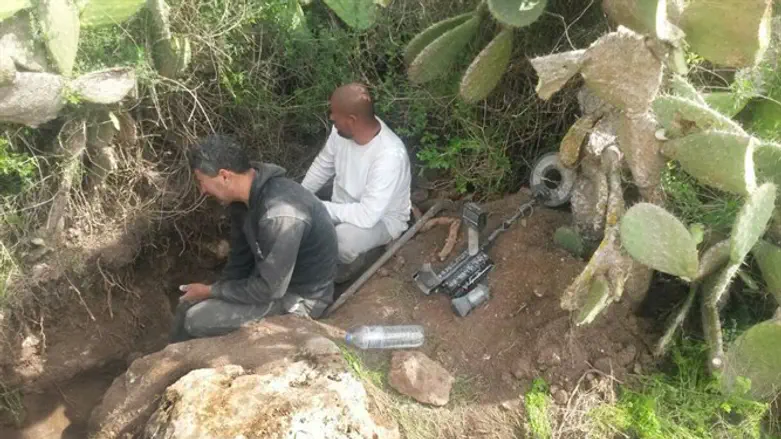
Supervisors from the Archaeological Burglary Prevention Division caught red-handed a group of Arabs looting an archaeological site in Modi'in.
The site, the Beit Shana ruins, is a 2000-year-old Jewish city from the Second Temple period. It was one of 900 cities destroyed during the Bar Kochba revolt, and still contains identifiable structures, hidden underground passageways, and water and agricultural facilities.
During a regular inspection of the area, classified as an archaeological heritage site, Israeli supervisors spotted three Arab suspects digging illegally under bushes. The supervisors immediately alerted field patrols, as well as Israel Police, who arrived hurriedly to arrest the suspects.
Upon investigation, the suspects, all in their 40s and from the Arab villages of Beit Ur al-Tahta and Kitana, were found to have digging tools, metal detectors, locksmiths' tools, lights, and a large amount of food and water.
"Based on the amount of food and water, it is obvious the suspects were planning to remain underground for an extended amount of time, while they continued digging deeper, aiming towards underground passageways from Bar Kochba revolt," Archaeological Burglary Prevention Division Head Uzi Rotenstein said. "Unfortunately, in recent years there have been several attempts to loot archaeological sites."
"These groups of burglars attempt to break into the underground systems in an attempt to find ancient artifacts. As they dig, they cause irreversible damage to the country's history and to the history of its people. The bushes don't bother them, since they are digging underground."
The three suspects were also found to be in Israel illegally, having entered via Rehovot's main road and public transportation. They admitted to investigators their intention to find ancient artifacts to sell.
Israel's Central District Court submitted an indictment charging them of harming an archaeological site.
A report from Israel's Antiquities Authority noted "the suspects caused irreparable harm to the site. Others who are not caught in time may end up harming the underground system and causing great damage."
In Israel, damaging an archaeological site is a criminal offense which carries up to five years in prison.